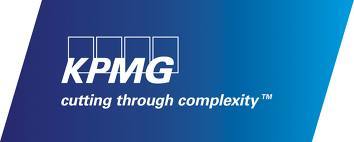Frank Rizzo is Partner and Technology sector leader for Africa at KPMG. During our upcoming events in Johannesburg (17 February) and Cape Town (19 February) he will deliver two thought provoking master classes about the latest and greatest in the IT world. In today’s partner interview we ask him what the major trends are and why CFOs should care.
Frank, where in the field of IT lies your personal passion?
"I have made my career in data analytics and to this day my passion is helping our clients getting the most out of the data they have got. Data mining and analytics have exploded in significance over the last few years. I like it, because it is all about the weird relationships and strange insights that you never thought were possible."
"For example, when we worked for a global mobile network company, we discovered the importance of treating multiple contracts as family units. Different members of a family might have different contracts, but if you don't deliver good service to the 13-year old child, the father of the same household with the expensive subscription might be negatively influenced or even terminate his contract. That is something we found out by scrutinizing the data."
What are the major trends in business technology in 2015?
"At KPMG we have identified six different trends. First of all cloud, which is maturing in the South African market. Then we also have data analytics, cyber security and mobile, where African companies have huge opportunities to catch up or leapfrog the rest of the world. Then there is social media, which is becoming mainstream and is ignored at your own peril. And lastly, there is gamification, a development that is probably furthest out from the South African reality. We all know how powerful videogames are and using similar techniques can provide win-wins, but implementation of those type of tools is still far off."
What technological issue are CFOs dealing with most at the moment?
"Many of our clients are grappling with automating controls into their systems. That might not sounds very exciting, but it is important for companies that they can take simple decisions out of human hands - that is why companies are busy enabling their systems to make decisions. These implementations should probably have happened 10 or even 20 years ago, but the necessity was not always felt. Now the world is becoming so complex, which means businesses can't cope without automated controls anymore."
 What is the role of CFOs in the digital revolution?
What is the role of CFOs in the digital revolution?
"To me CFOs have a very big challenge ahead of them. They need to understand the technologies, but also the promises they hold. They need to be able to see if it makes sense from a business point of view to invest in certain technologies. We are noticing that Return On Investment remains the biggest hurdle when advising CFOs about the need for tech investments, especially because the benefits of some of the newer technologies are quite hard to quantify."
"We have also seen the rise of the CIO and their inclusion in some boards. There needs to be a good understanding between CFO and CIO. When there is a disconnect between the two, it can be very hard to bring good business cases to the board."
How can CFOs prevent tech spending spiraling out of control?
"Cloud brings a very interesting business case. You don't have to own a lot of hardware anymore, so your capex is much lower and the risk of buying equipment that soon becomes obsolete is greatly reduced. Instead, software upgrades are implemented automatically by your cloud provider. That doesn't mean the future is always as rosy as cloud vendors portray it to be. There are also downsides. Working in the cloud requires a mindset shift from the data owners, but you can't get around the fact that your data is sitting somewhere else. Besides possible security risks, this also brings complex international legal and tax issues that still have to be solved."
- Stay connected, up to date and in the loop on what is happening in the world of finance and keep track of newly published expert insights and interviews with CFOs and CEOs. Become an online member and receive our newsletter, follow us on Twitter and join us on LinkedIn.
- Share your ideas with the CFO Community as well with an interview or during one of our CFO events. Please contact Jurriën Morsch at [email protected]








